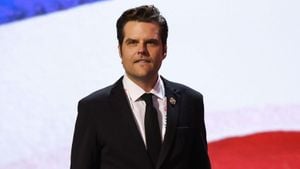The American healthcare system is undergoing significant transformations, especially when it involves the management and treatment of obesity. A recent analysis has shed light on how state Medicaid programs, catering to low-income families, are leading the charge by providing substantial coverage for popular weight-loss medications from major pharmaceutical companies like Novo Nordisk and Eli Lilly.
According to reports, over 52 million Americans now have access to these medications, primarily due to state Medicaid programs, which cover roughly 31.6 million individuals. This data is drawn from the AXIACI Obesity Coverage Nexus—a comprehensive database from Leverage consulting tracking obesity treatment coverage across about 80% of insured Americans. The findings highlight the stark difference between coverage through government-funded health plans versus private insurers. While government programs dominate the scene, commercial health plans offer far fewer options. Just about 13.7 million people are covered for these medications under private plans, painting a less rosy picture for many Americans seeking effective obesity solutions.
The rapidly ascending costs associated with medications like Wegovy and Zepbound, which are priced over $1,000 monthly, have raised eyebrows and sparked concerns among both lawmakers and consumers. The transformative potential of these drugs, reportedly allowing users to shed between 15% and 20% of their body weight, poses significant questions about affordability and accessibility. This crisis is compounded by the fact many patients faced barriers when trying to access these important treatments, including stipulations like mandatory meetings with dieticians or completion of lifestyle change programs prescribed by private insurance plans.
A key aspect of this health policy analysis reveals substantial disparities between government-sponsored plans and private employer-sponsored plans. State Medicaid programs have become the biggest contributors to obesity drug coverage, highlighting the slow uptake of commercial insurers to follow suit. Kathy Hempstead from the Robert Wood Johnson Foundation remarked on this distinction, stressing how rising health insurance premiums complicate wider adoption of obesity treatments through employer-based plans. This scenario underlines the prevailing trends where public health programs significantly outperform private plans, restraining effective treatment options for millions.
The pressure for broader insurance coverage, as articulated by Novo and Lilly, is backed by strong advocacy for their medicines. They contend easing access will mitigate numerous health problems associated with obesity, such as heart disease, diabetes, and sleep apnea, which modern society grapples with. Empresas are backing this move—Novo, for example, states nearly half of Americans living with obesity are now eligible for weight-loss medication coverage. Both companies aim to bolster their pharmaceutical presence as they seek to drive effective solutions against obesity and its related complications.
Interestingly enough, the analysis revealed how these government health plans significantly influence medication pricing dynamics. Medicaid, by design, is entitled to some of the most substantial discounts on drug prices, making it the ideal mechanism for widespread access. Research economist Brian Bruen has pointed out the unexpectedly high obesity prevalence among Medicaid beneficiaries, presenting drug manufacturers like Novo and Lilly with great potential for sales volume. Hence, the question arises: how will they navigate the challenges posed by high costs when the market is primarily fueled by government programs?
When it came to state guidelines, almost 14 states, including California and North Carolina, have embraced the use of GLP-1 receptor agonists for obesity management, with another 17 states covering their public employees and dependents. These varying regulations create quite the patchwork scenario across the country—making it difficult for many individuals to determine their coverage options. Christine Ferguson, managing partner at Leverage and former executive director of Rhode Island's health insurance marketplace, noted the cautious approach being taken by states, with each making unique decisions based on local health needs.
The healthcare industry is at a crossroads, with obesity rates on the rise and the need for effective treatments becoming urgent. Wegovy and Zepbound offer hope, yet their accessibility hinges on overcoming insurance hurdles and achieving comprehensive coverage. The detrimental impact of rising obesity rates is already evident, with over 100 million adults grappling with obesity-related health issues. This trend raises serious ethical questions as society struggles to balance the need for affordable treatment options and the economic realities faced by pharmaceutical companies.
Closing the coverage gap for weight-loss drugs starts with increasing awareness and empathy within the healthcare sector, prompting decisive actions from lawmakers, insurers, and pharmaceutical companies alike. All stakeholders must recognize the pressing nature of obesity as a health crisis, working together to provide solutions not just for the few but for the many. Navigational obstacles ought to be eased, allowing broader access to necessary treatments and ensuring the voice of the underserved is amplified as the U.S. healthcare system continues to adapt to this pressing public health issue.



